I'm building a rather large "search" engine for our company intranet, it has 1miljon plus entries it's running on a rather fast server and yet it takes up to 1 min for some search queries.
This is how the table looks

I tried create an index for it, but it seems as if i'm missing something, this is how the show index is showing

and this is the query itself, it is the ordering that slows the query mostly but even a query without the sorting is somewhat slow.
SELECT SQL_CALC_FOUND_ROWS *
FROM `businessunit`
INNER JOIN `businessunit-postaddress` ON `businessunit`.`Id` = `businessunit-postaddress`.`BusinessUnit`
WHERE `businessunit`.`Name` LIKE 'tanto%'
ORDER BY `businessunit`.`Premium` DESC ,
CASE WHEN `businessunit`.`Name` = 'tanto'
THEN 0
WHEN `businessunit`.`Name` LIKE 'tanto %'
THEN 1
WHEN `businessunit`.`Name` LIKE 'tanto%'
THEN 2
ELSE 3
END , `businessunit`.`Name`
LIMIT 0 , 30
any help is very much appreciated
Edit:
What's choking this query 99% is ordering by relevance with the wildcharacter %
When i Do an explain it says using where; using fsort